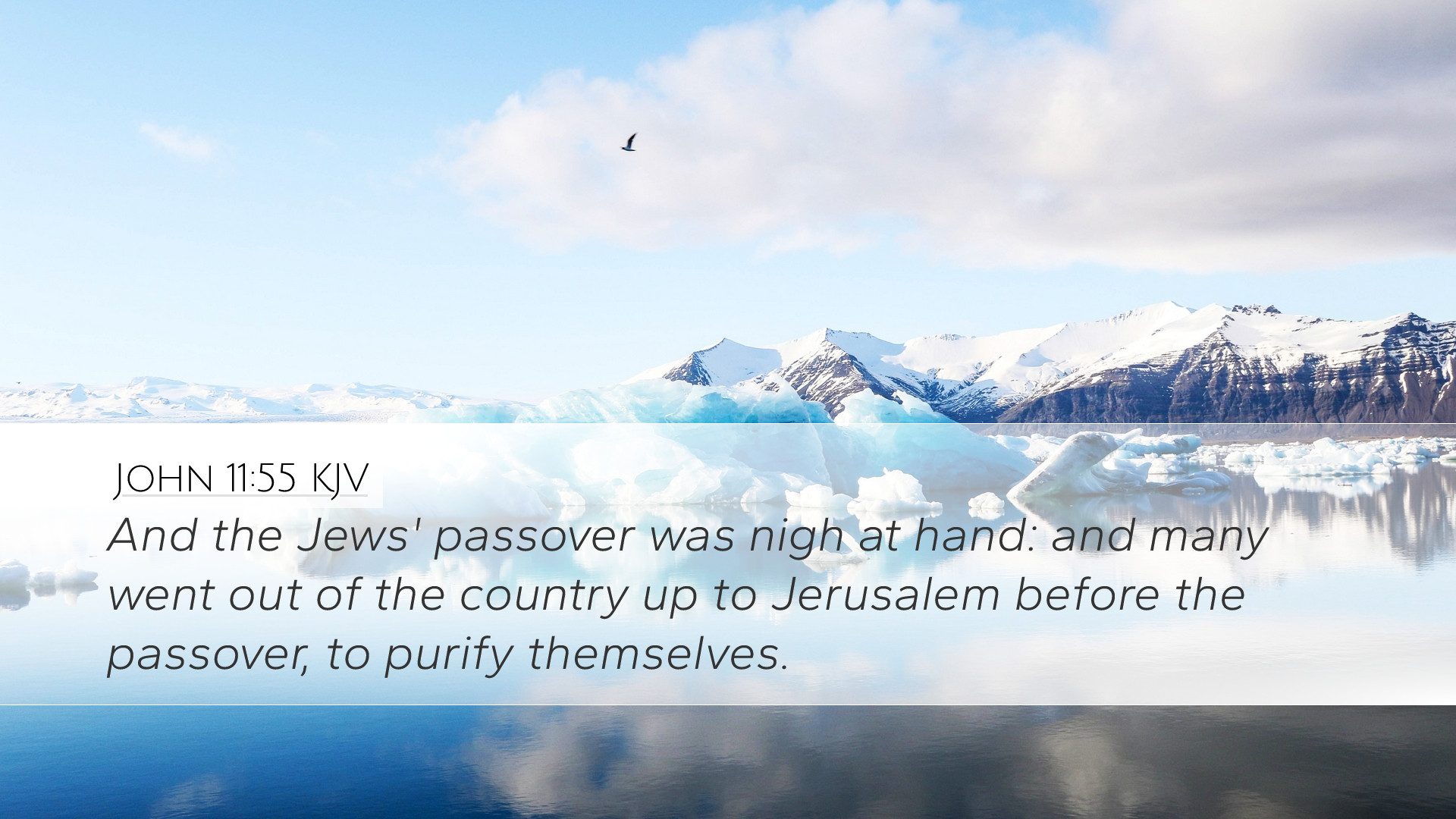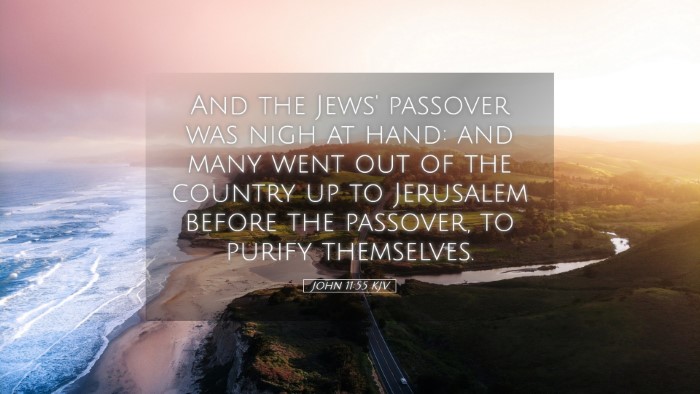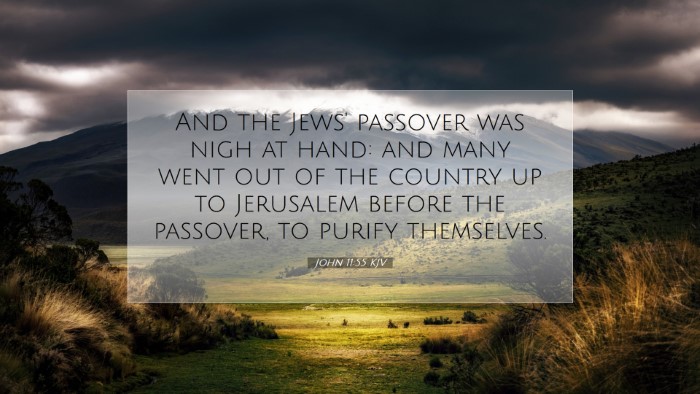Commentary on John 11:55
Verse Context: John 11:55 states, "And the Jews’ Passover was nigh at hand: and many went out of the country up to Jerusalem before the Passover, to purify themselves." This verse sets the stage for the events leading up to the crucifixion of Jesus, situating them within the Jewish tradition and festival.
Introduction
This verse is pivotal in understanding the cultural and religious background of Jesus’ ministry as well as the impending conflict that will lead to His crucifixion. The observance of the Passover was a critical time for the Jewish people, marked by purification rituals and communal gatherings. This commentary draws from various public domain sources to explore the theological and historical implications of this verse.
Key Themes
- Purification Rituals:
As noted by Matthew Henry, the act of purifying oneself before Passover was a deeply ingrained cultural practice. This ritualistic cleanliness was essential because it demonstrated a readiness to participate in the Passover festivities, which commemorated Israel's exodus from Egypt and God's deliverance. The requirement of purity reflects not only physical but also spiritual preparedness to engage with the holy events. Henry further emphasizes the symbolic nature of this purification in relation to Christ as the ultimate sacrificial Lamb.
- The Significance of Timing:
Albert Barnes highlights the importance of the time reference in this verse. The approach of Passover acts as a catalyst for the events that unfold in the narrative. The large influx of people into Jerusalem sets up the dramatic contrast between the public recognition of Jesus and the plots by the religious leaders to eliminate Him. This timing reflects God's sovereignty and divine providence, orchestrating events that lead to the fulfillment of Old Testament prophecies concerning the Messiah.
- The Nature of the Crowd:
Adam Clarke emphasizes the varying motivations of the people gathered for the Passover. Some traveled to witness Jesus, having heard of His miracles, while others had ulterior motives spurred by the religious authorities. Clarke’s insights into the nature of this gathering point toward a broader theological truth about human intentions when approaching the divine. This brings to light the concept of true worship versus superficial participation in religious activities.
Theological Implications
The verse encapsulates several theological reflections that are crucial for understanding the broader context of the New Testament narrative:
- Covenantal Fulfillment:
The Passover signifies God's covenantal promise to His people. In this light, Jesus emerges as the fulfillment of the Passover sacrifice, linking back to the Exodus narrative. The necessity for purification is overshadowed by the reality that Jesus Himself embodies purity, thereby offering a new way to approach God.
- Messianic Revelation:
The excitement and anticipation surrounding the Passover serve to heighten the revelation of Jesus’ identity as the Messiah. It is in this context that His own impending sacrifice becomes particularly poignant, as He is recognized not only as the Lamb but also as the one who brings the new covenant.
- Conflict with Religious Authority:
The religious leaders' motivations reveal a stark warning against the dangers of institutional religion that can resist divine truth. This conflict foreshadows the challenges that Christ would face, emphasizing the need for believers to remain discerning and closely aligned with the heart of God, rather than merely adhering to tradition.
Application for Believers
For pastors and scholars alike, John 11:55 emphasizes several key aspects for modern application:
- Spiritual Readiness:
Just like the Jews prepared themselves for the Passover, believers are called to purify their hearts for communion with Christ. This entails a constant reflection on one’s life and a commitment to holiness.
- Awareness of Divine Timing:
Understanding and being sensitive to God’s timing in our lives can lead to greater appreciation of His sovereignty and plans. Just as the Passover was a time for reflection and remembrance, Christians today are encouraged to seek God’s presence actively.
- Evangelistic Opportunities:
The gathering of people for Passover brings an opportunity for believers to witness about Christ. Every seasonal aspect of worship can be used as a platform to share the gospel message and demonstrate the life-changing aspects of faith in Jesus Christ.
Conclusion
In summary, John 11:55 provides a multi-layered insight into the cultural, historical, and theological fabric of the era surrounding Jesus’ ministry. By examining this verse, through the lenses of public domain commentaries, we glean not only a better understanding of the text but also profound implications for our spiritual lives today. It invites us to participate actively in the ongoing narrative of redemption, underscoring our role in carrying forth the message of hope that Jesus embodies as the Passover Lamb.


